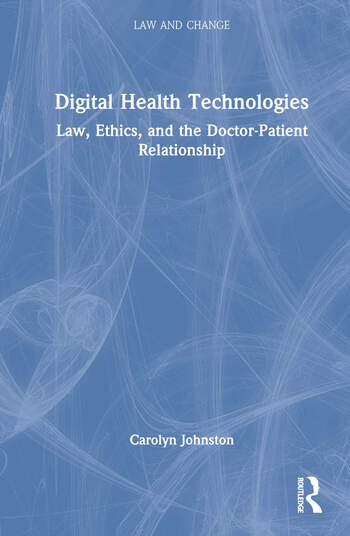
Increasingly digital technologies are used in healthcare. This book explores eight digital health technologies, situated the context of a life span, from high throughput genomic sequencing technologies and DIY insulin delivery for diabetes management in paediatrics, to the use of robotic care assistants for older adults and digital advance care decisions.
A scene setting case scenario at the start of each chapter describes the digital technology and identifies the, sometimes competing, interests of the key stakeholders. Broad themes of resource allocation, access to technologies, informed consent, privacy of health data and ethical concerns are considered in context, alongside analysis of legal duties owed by healthcare professionals to act in their patients’ best interests.
This book addresses legal and ethical issues arising from the use of emerging digital health technologies and is of interest to academics, clinicians and regulators and anyone interested in the development of health technologies and the challenges they may present. It focusses on the Australian legal framework, with some comparison to other jurisdictions.